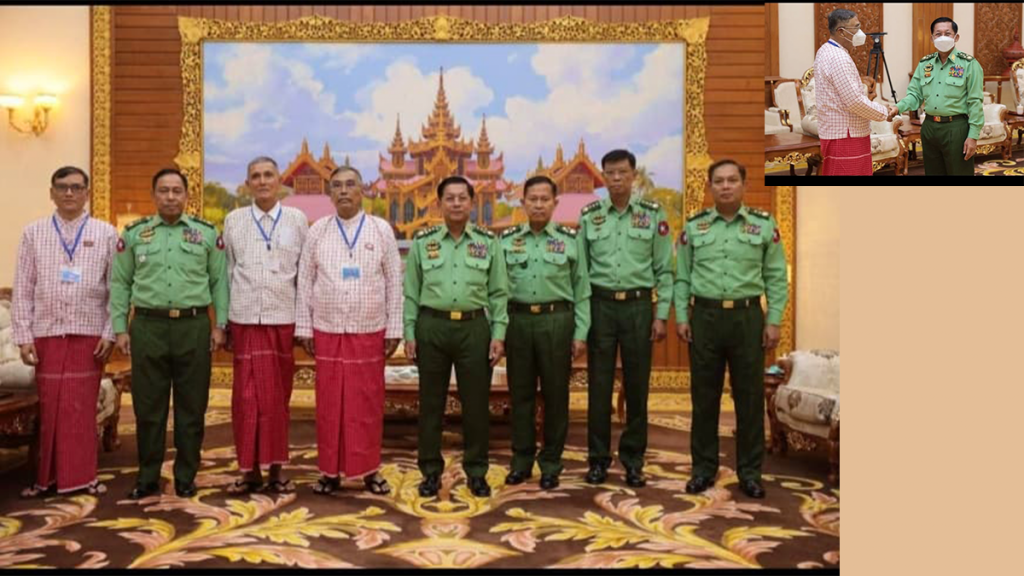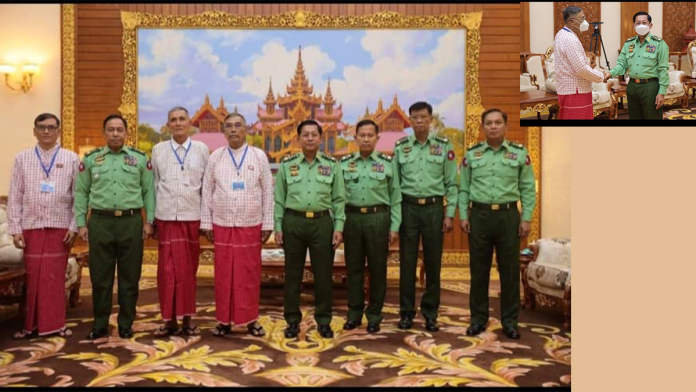The New Mon State Party (NMSP) met with the State Administrative Council’s (SAC) Chair, Sr. Gen. Min Aung Hlaing on the morning of May 23 to discuss the possibility of federalism and a separate constitution for Mon State.
NMSP spokesperson, Nai Aung Ma Ngya told the Mon News Agency that during the meeting the two parties also discussed Mon national affairs and other NMSP issues.
“Our proposal is for the establishment of a federal constitution and we submitted a draft for a separate state constitution. During this discussion we noted, the people in the state need to be able to discuss these issues freely . We also raised the issue of the Mon National Party and other issues relevant to the NMSP, ” said Nai Aung Ma Ngay.
Also in attendance was Vice-Chair Lt-Gen Soe Win, and SAC Council members Gen. Mya Tun Oo, Lt-Gen Moe Myint Tun, Lt-Gen Ya Pyi. Attending for the NMSP were Vice-Chair Nai Aung Min, Joint Secretary Nai Win Hla, and Nai Banyar Lae representing the Central Executive Committee in charge of Home Affairs .
The NMSP will continue to submit its proposals to the SAC.
“The senior generals can freely discuss a federal and state constitution that we have just presented. We have the right to freely discuss both constitutions of the state,” Nai Aung Ma Ngay said.
Based on these talks, the National Unity and Peace Coordination Committee (NSPNC) and the NMSP will hold further talks in the coming days.
Other relevant developments include a meeting of the Restoration Council of Shan State (RCSS / SSA) which began on May 20.
The Karen National Liberation Army Peace Council (KNLA-PC), the Democratic Karen Buddhist Army (DKBA), the Lahu Democratic Union (LDU), the Pa-O National Liberation Organization (PLNO), the Arakan State Liberation Party (ALP), the United Wa State Army (SSA) and the National Democratic Alliance Army (NDAA) will also each hold separate meetings.
Chair of the RCSS/SSA, Gen. Yew Sit noted that the NSPNC and the National League for Democracy should also work together to implement a constitutional amendment process, in accordance with the federal principle of universal acceptance.


